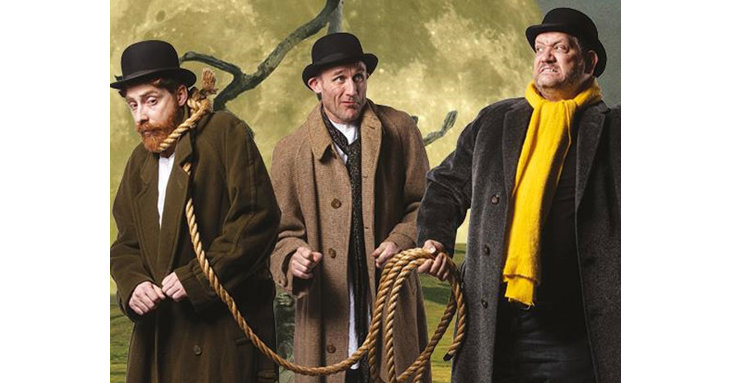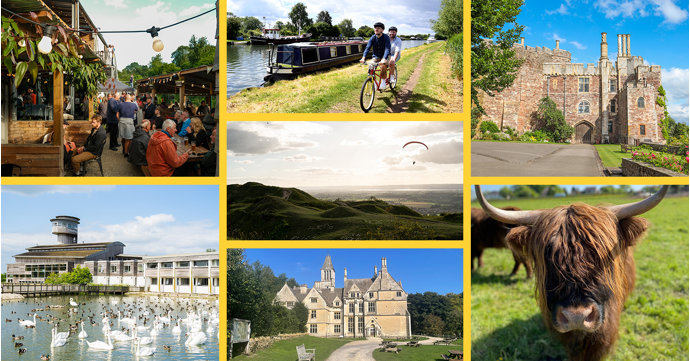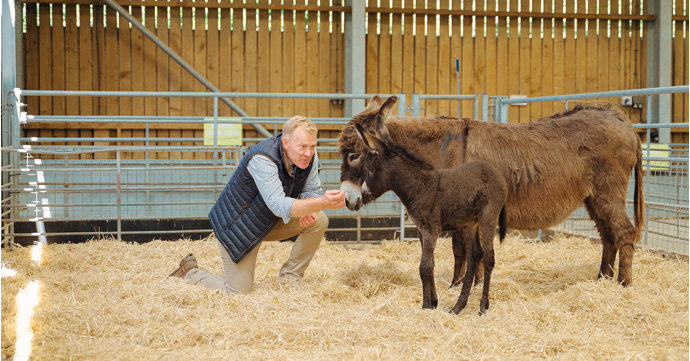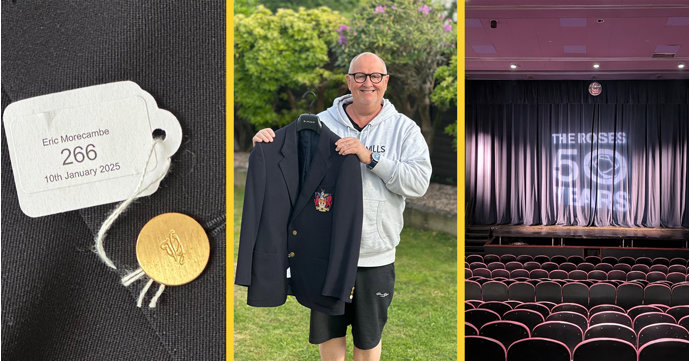Starting rehearsals for his latest show just one day after an intense six-week run in Everyman Theatre’s Aladdin pantomime, there’s no denying that Tweedy is one of the hardest working actors in Gloucestershire.
‘I was supposed to take a break last October, but then I realised I needed to write my next solo show, so I’m not sure when I’ll have any time off really!’
The county’s favourite clown is preparing to take a break from pranks to become the iconic character of Estragon in Samuel Beckett’s modern classic, Waiting for Godot.
Having just enough time for a sandwich and a can of Iron Bru between panto shows, Tweedy caught up with SoGlos to discuss his latest show, which is quite the departure from his usual style.
This is very exciting for people in Gloucestershire to see you in a more serious role. How did it come about?
I did a play about five years ago in the studio and that was interesting. It got good reviews and was well attended but I’ve not had a chance to do it again, until last year when I thought, ‘maybe I’ll try acting again.’
I got in touch with Mark Goucher (chief executive of Everyman Theatre) and eventually he came back and said ‘what about Waiting for Godot?’ I thought ooh okay, it’s a tricky play but I am looking forward to it.
H4. How would you describe the play?
It’s difficult to describe because you can’t actually decipher it properly. There are hour long discussions of people trying to figure it out, and that’s kind of the beauty of it. People can interpret it in different ways and get different things out of it.
But basically, it’s two tramps, waiting for a guy called Godot. That’s kind of it, until two other guys come along and interact. It’s about their relationship and the characters, and I was really drawn to the tramp characters, so that was one of the reasons I wanted to do it.
It is a tricky play to get right. I think it’s about how you portray the characters, and we hope to get a lot of physicality into it, which is a trademark for me.
Were you familiar with the play before getting involved?
Yeah, I’d first heard of it about 12 years ago. There’s this clown who is a hero of mine called Bill Irwin – he’s American. He’s won a Tony award for his clown show on Broadway, and he’s also won a Tony award for his acting.
He was over in London doing Who’s Afraid of Virginia Woolf? in the West End and I bumped into him by accident. I was a bit gobsmacked, this guy is my hero! Anyway, I got speaking to him and he didn’t know anyone in London, so he was happy to hang out. So, we just went into this aerobics studio with mirrors and just put on baggy trousers and played together, and I learnt quite a lot from him.
It was Bill who introduced me to it. He’s got this complete fascination with Beckett, and then about four years later, I was in America doing a circus over there, and he was doing Waiting for Godot on Broadway and I saw that production and absolutely loved it – it was really good and really funny.
But on the other side, I did see another production of it and I was quite bored, so hopefully ours will be like the Bill Irwin version!
How have you found the switch from clowning to a more traditional style of acting?
I think the main difference for me is that there’s a fourth wall. Normally I don’t work with a fourth wall at all, so if I forget the lines in the panto I’d just say ‘Oh! I’ve forgotten the lines everybody!’ and people laugh, which is great, but of course you can’t do that in a play.
Most actors find it very hard not having the fourth wall, so for me it’s the opposite. I’ve got to try and not get distracted by people in the audience. Usually if someone heckles or something happens in the auditorium then to me, in the panto, that’s a gift! I’ll pick up on it and find the comedy you can get out of each moment, but now I have to try and ignore it!
That said, the character I’m playing in Waiting for Godot is very clown-like, and quite often the people who play him are actors doing clowning, rather than a clown acting, so lots of people who know the show well have said they think it’s a good role for me.
In the play you never find out who Godot is. What’s your interpretation of who he is?
That’s such a difficult question to answer! Personally, I just don’t know!
We’re waiting for him, but I think he’s seen as a potential employer, or some kind of… I don’t want to say saviour as that’s too much like God, but someone who’s going to help them.
They’re so down on their luck, they haven’t really got food and they’re just desperate for him to turn up. I think they think if he turns up, life’s going to be great as soon as he’s here.
But as for who he actually is. I just don’t know.
For more information see Waiting for Godot, call (01242) 572573 or visit everymantheatre.org.uk directly.



.png?width=690&height=361&rmode=pad&bgcolor=ffffff&quality=85)

















